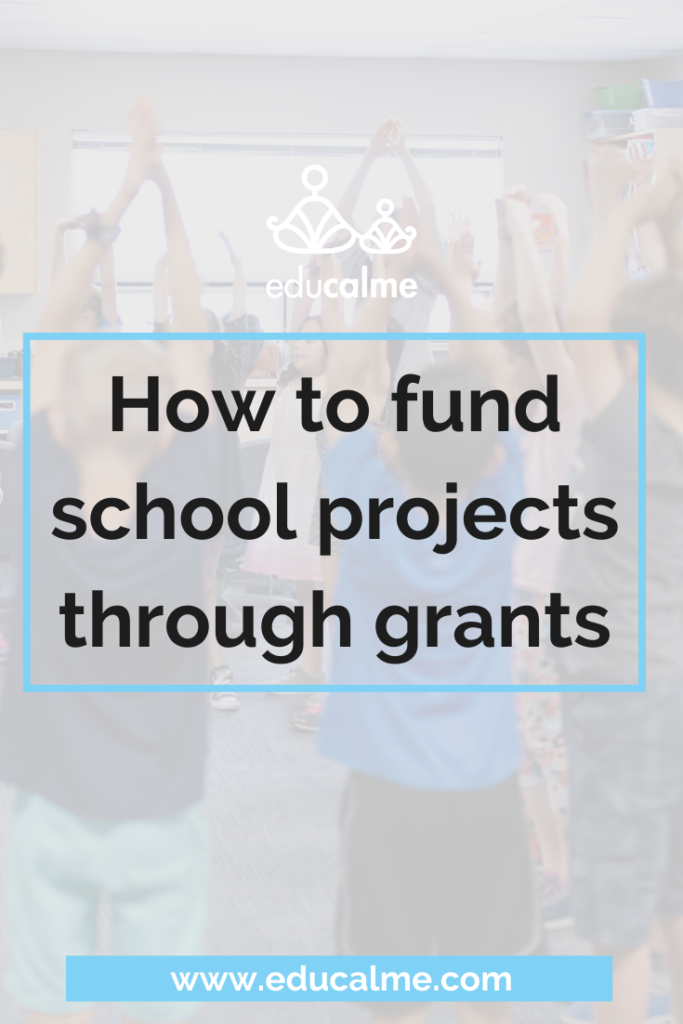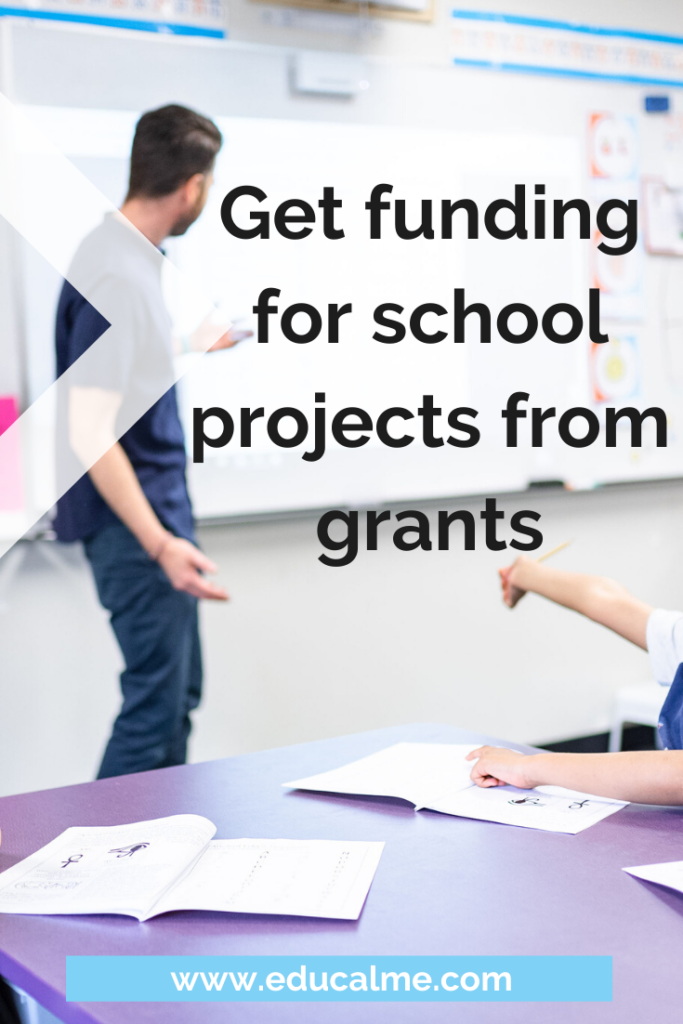Applying for grants to fund school projects is a great way to ensure we’re able to support our students’ needs even if our school doesn’t have the money required for the project or resource in the budget. However, applying for grants can feel daunting.
In this post, we’ll be sharing the steps for how to find a grant for your school project. Then, we’ll walk you through the steps for how to apply for a grant to fund your school project so that you are most likely to receive the grant.

Before we explain how to search for and apply for a grant, let’s go over some of the vocabulary you will need to be familiar with when researching and applying for grants.
The group that gives grants is called a foundation. There are two different kinds of foundations.
Community foundation: A community foundation is a non-profit organization that exists to improve the lives of people in their community. Anyone in the community can donate to the organization and the foundation exists because of the donations from the community for good, forever. There are community foundations in small towns as well as large cities. To find a community foundation dedicated to improving the lives of people in your community just research “foundations in [your city]”.
Ex. If you search for “Foundations in Winnipeg” on the internet, you’ll get a list that includes several foundations including The Winnipeg Foundation.
Private foundation: A smaller group of people that create the foundation and give to them. A private foundation is often set up by a family that contributes to the foundation themselves.
A donation isn’t for a specific purpose. The organization or individual receiving the donation can put the funds towards anything they choose. Ex. When Winnipeg Harvest receives a donation, they can use those funds to buy food or to renovate their building or for anything that they choose.
A grant is for a specific purpose. When an organization or individual receives a grant, it must go towards the purpose stated in their grant application. Ex. If you apply for a grant specifically to purchase an Educalme Classroom Membership, the funds would go towards the membership and couldn’t be used for other classroom resources.
A grant is a great way to fund a school project and grants are usually offered by foundations. As you learned above, grants are awarded for a specific purpose. Therefore, you must get clear on the purpose of your project and then find grants that align with your goals.
Define the goal of your project. What is the problem you are trying to solve? What is the solution you are proposing? Who (what population) are you supporting with your solution? How much will it cost? What are the outcomes you are aiming for?
Once you’ve defined the goal of your project, search the internet for foundations and grants that prioritize those outcomes and the population your project is serving. For example, if your goal is to support your grade 4 students in their mental health and wellness with Educalme Classroom you would search for mental health and wellness grants for youth in your community.
Look for foundations and grants that align with the priorities and the population of your project. The better the grant and the project priorities align, the more likely you are to be awarded the grant and the less time you will waste applying for grants that aren’t a good fit.
Once you’ve found a grant that aligns well with your project, look for the application deadline and make sure you give yourself lots of time to register for the grant application process, write your grant proposal, edit it and send it.
Once you’ve found a grant that is a good fit, make a compelling case for your project. In your application, include statistics that demonstrate the depth of the problem your community is facing and then how your project will solve the problem. In addition, use stories that demonstrate the struggles your community is facing and how the grant will solve or is solving those problems. Remember that it is is a kind and caring person that wants to make a positive impact in their community that is reading your application. They want to understand how the grant will make a difference in the lives of their community members.
You might be looking for a grant that will fund your project for several years. Those long term grants are available. It is a good idea to give the grantmaker updates on how their funding is making a difference so that they can see that their funds are making a difference and are motivated to continue supporting your project. It’s important to remember that the grantmakers are real people that care deeply about supporting their community really appreciate knowing that their choice to fund your project is making a real impact.
We hope that this blog post helps you to successfully find and apply for a grant to fund your school project!
Blow is a list of foundations and grants in Manitoba, Canada that you might want to look into.
https://www.gov.mb.ca/healthyschools/hsgrant/index.html
https://www.wpgfdn.org/Granting/ApplyforaGrant/One-TimeGrants.aspx#1506240-eligibility
https://www.rbc.com/community-social-impact/apply-for-funding/youth-mental-wellbeing-guidelines.html
https://letstalk.bell.ca/en/community-fund
If you know of any grants that could be a good fit for school projects in your community, share it with us in the comments so we can add it to our list.
To go even deeper on this topic, listen to our episode on The Balanced Educator Podcast below.
Be sure to subscribe to the Balanced Educator Podcast so you don’t miss our upcoming episodes as we continue to teach how to avoid teacher burnout. iTunes, Spotify, Google Play
Share this post on Pinterest so other educators can learn concrete strategies to form healthy habits this school year.

Let us know in the comments, how will you implement what you learned today?
A special thanks to our sponsor:
Little Love Home – Use the code EDUCALME10 for 10% off your first order